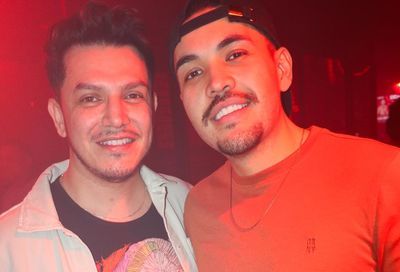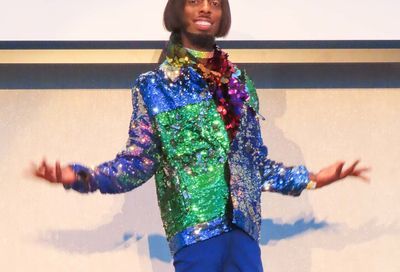The first time I wanted to kill myself was eighth grade.
The incident leading up to that was a rather convoluted one, but the short version is that I was a little bit sissy, a whole lot bookworm, and completely the boy who threw up on the first day of gym class. My social sphere was accordingly circumscribed.
But meanness isn’t limited to popular kids, I found.
I honestly still don’t know how I made it through, given that I never told my parents the full story. I couldn’t tell my dad that I was being called a sissy and a fag. I’ve never been more lonely than I was at 13.
The second time I wanted to kill myself was in college, when a combination of my tentative exploration of my orientation — a high-toned way of saying I was starting to have the sex I wanted, rather than the sex I was expected to have — and misplaced trust in a ”friend” led to me being outed.
It was worse then because I was being called a faggot and it was true. But it was better because I had some friends who helped me stay together long enough to understand that being openly gay was okay, because that was being true.
I don’t share these stories because they’re unique. I’m telling them now, as we all seem to be, because they’re still sadly universal, a fact driven home by the recent spate of reports on gay teen suicides across the country.
Sometimes progress can make us forget how difficult life can still be for others. In the Washington Post this week, SMYAL Executive Director Andrew Barnett pointed out, ”There is this feeling in the older LGBT community that coming out is easier for youth now than it was for them. And that’s just not always true.”
I’ve been moved by the outpouring of support and stories as part of Dan Savage’s ”It Gets Better” project on YouTube. It’s sometimes far too easy for us to relive the painful times of our youth and forget to share some of the triumphs of our adulthood. That’s why I’m glad that groups such as SMYAL and the Trevor Project are there to provide the support we didn’t have when I was young. We need to help them provide that support to kids who don’t always realize it’s there.
It does make me wonder what sort of advice I would give my 13-year-old self as I sat alone in rural Kentucky, knowing that I was queer on the inside and unable to share it on the outside. I can think of two things, to start.
First, there will be people who will tell you that they love you, they just hate the sin.
Do not believe them. They are lying to you.
Second, there will be people like Maggie Gallagher who will tell you that they don’t have a problem with you, they have lots of gay and lesbian friends. They just want to protect their own values.
Do not believe them, either. They are, most definitely, lying to you.
Life as a grown-up isn’t exactly easy. But I have a husband and a family and a job, all of which I love, and all of which I was once told I couldn’t have.
It really does get better.

















